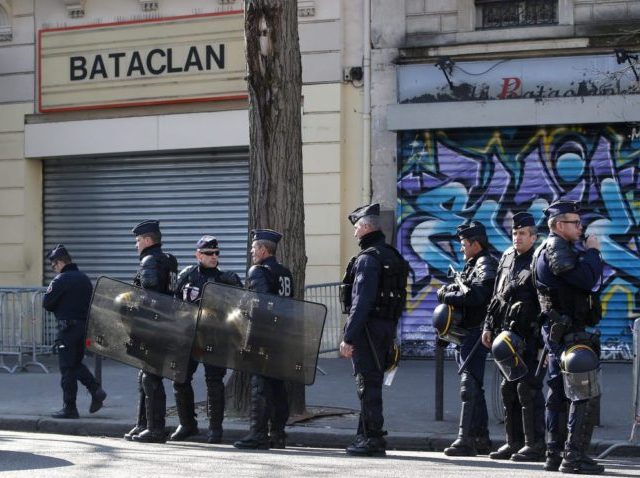British laws allowing for the deportation of migrants who exhibit “extremist behaviour” may contravene a United Nations convention on refugees rights, the general assembly of that body is to hear.
In a speech slamming national governments for their reticence over open borders, the UN official responsible for reporting on counter-terrorism, Ben Emmerson QC, is set to single out the UK for setting restrictions on taking in migrants who may be a threat, a policy which he says stokes public fears of terrorism, The Guardian has reported.
Specifically, he will slam a Home Office report, Asylum Policy Instruction: Revocation of Refugee Status, published earlier this year, which states: “Extremist behaviour: where there is any evidence that a refugee or their dependents have engaged in unacceptable behaviours (whether in the UK or abroad) considered not conducive to the public good or has acted in a way which undermines British values, their status must be reviewed [and referred to the special cases unit].”
It also notes that: “Although there is no requirement to formally respond to representations from [the UN high commissioner for refugees] caseworkers must take their comments into account as part of the decision on whether to proceed with revocation and provide UNHCR with a copy of the final decision.”
Emmerson, who has been the UN’s special rapporteur on “protecting human rights while countering terrorism” since 2011, will tell colleagues: “The United Kingdom, as just one example here, has enacted legislation allowing for the review and revocation of refugee status if a person is thought to have exhibited extremist behaviour, or if their dependents have acted in a manner inconsistent with British values.
“Legislation of this kind, with the vagaries that are necessarily entailed in such generalised definitions, runs a risk of falling short of the requirements of the 1951 refugee convention.”
Broadening his criticism to European nations at large, he will continue: “The link between displacement of people from their homes and risks to national security in the countries in which they seek refuge has been irresponsibly and misleadingly overblown in many states, with the refugee crisis being used to stoke public fears of terrorism.”
A public fear which he says is unfounded, as he claims that there is little to no link between terrorism and migrant flows across Europe.
“There is almost no evidence that terrorist groups take advantage of refugee flows to carry out acts of terrorism, or that refugees are somehow more prone to radicalisation than others. These claims are analytically and statistically unfounded,” he will say.
In fact, there is evidence that some of the perpetrators the Paris attacks last November in which 130 people perished posed as migrants to enter Europe. Those cases have been dismissed by some, who claim that, as fake passports are in abundance along the migrant route, it is impossible to know who has come into Europe using those channels.
However, migrants along the route have also been found to have been planning terror attacks. In February, two men arrested in Salzburg while posing as refugees confessed to planning further terror attacks in Paris; in June, three Syrian migrants planning a Paris-style massacre in Dusseldorf were arrested by German police.
Nonetheless, Emmerson will claim: “Almost without exception, refugees and migrants do not pose a risk – they are in fact at risk, fleeing regions where terrorist groups are most active. It is beyond question that terrorist activity, in the form of asymmetrical armed conflict, is a significant driver for internal displacement and the flight of refugees.”
And he will slam the measures national governments have taken to protect their citizens from the potential threat of terrorism and from illegal immigration, saying: “Many states have introduced stricter border controls, built fences and walls to keep migrants and refugees out, engaged in push-back operations, criminalised irregular migration and abandoned pledges to accept refugees.
“Among the measures that pose serious human rights concerns are ethnic or religious profiling, the disproportionate collection of often inaccurate biometric and other data, forced fingerprinting and, perhaps most seriously, the criminalisation of irregular migration.”

COMMENTS
Please let us know if you're having issues with commenting.